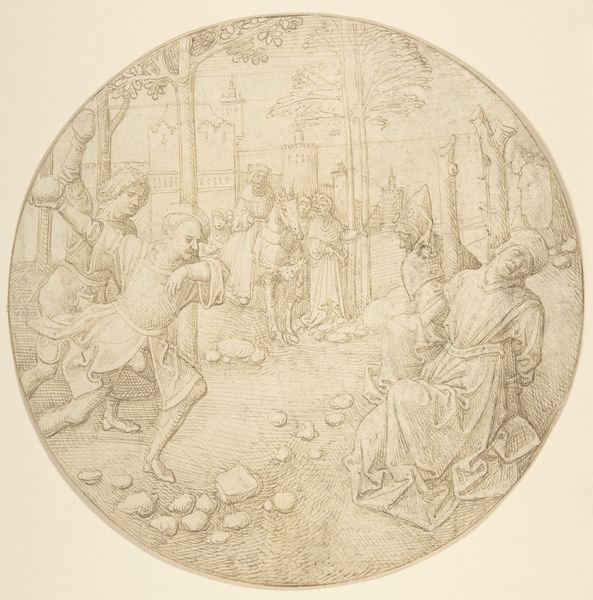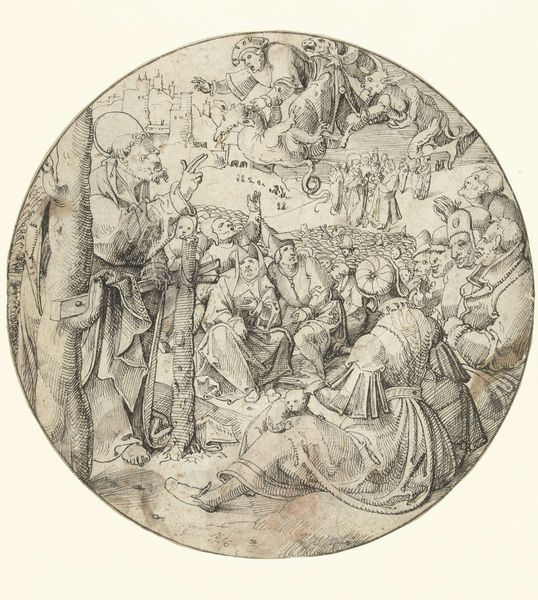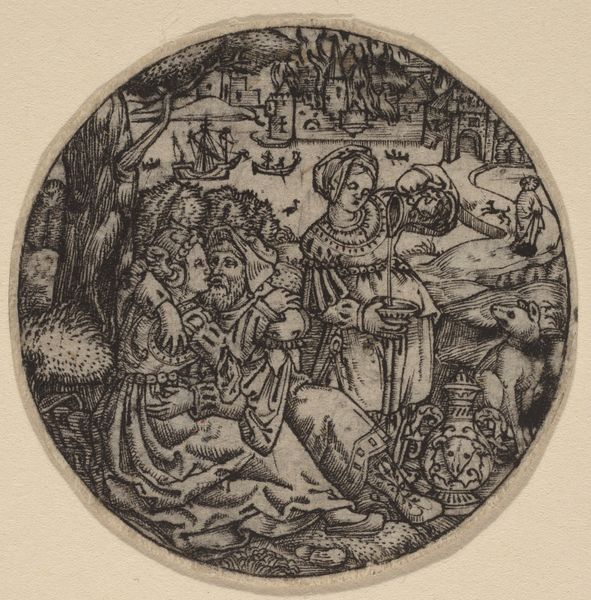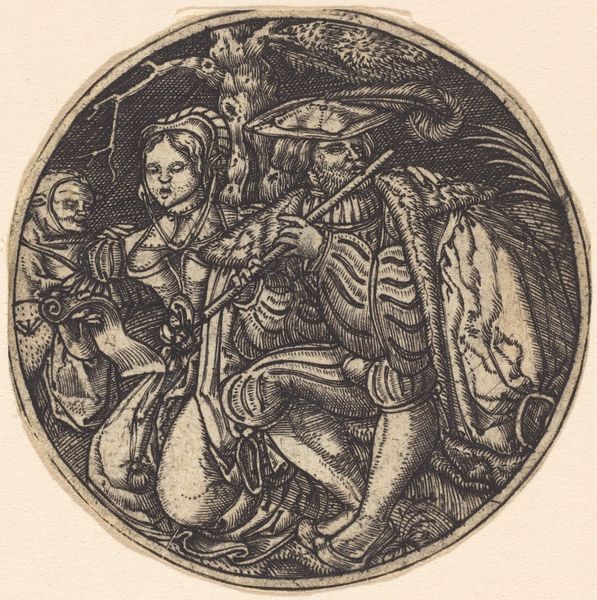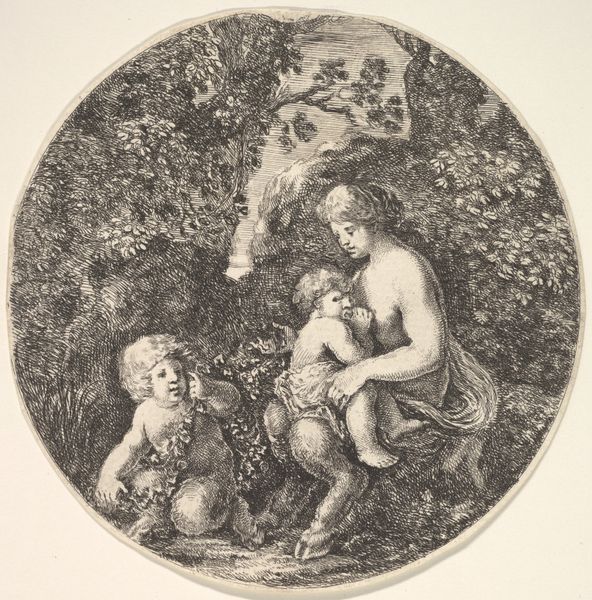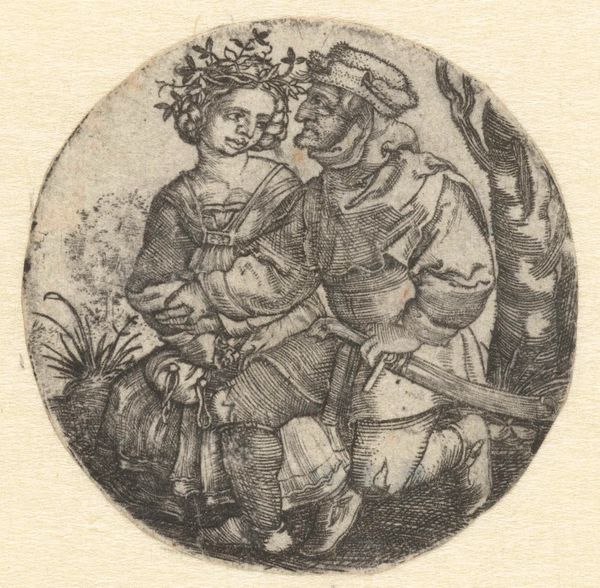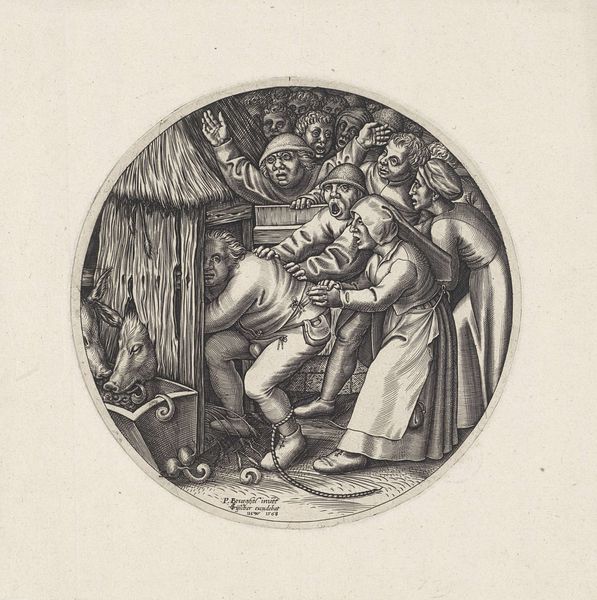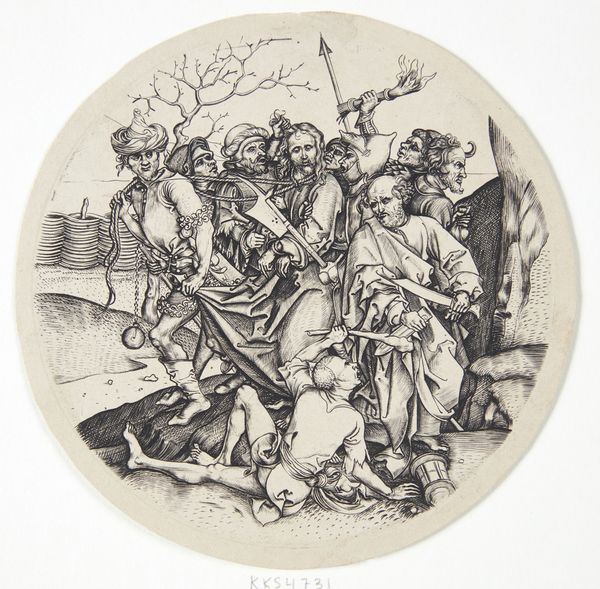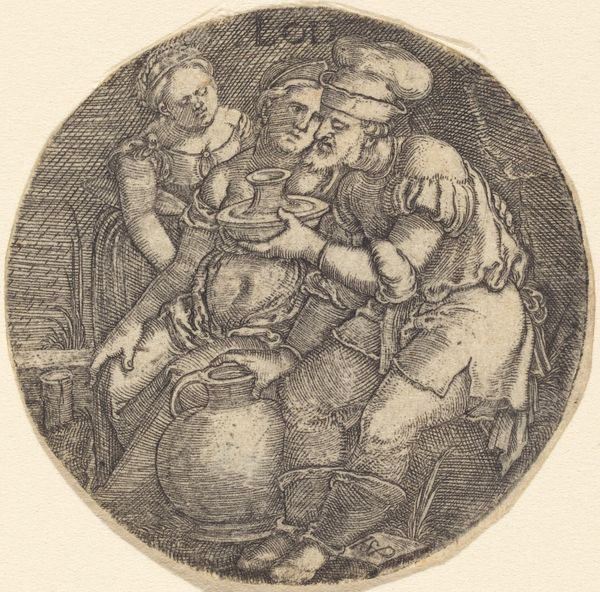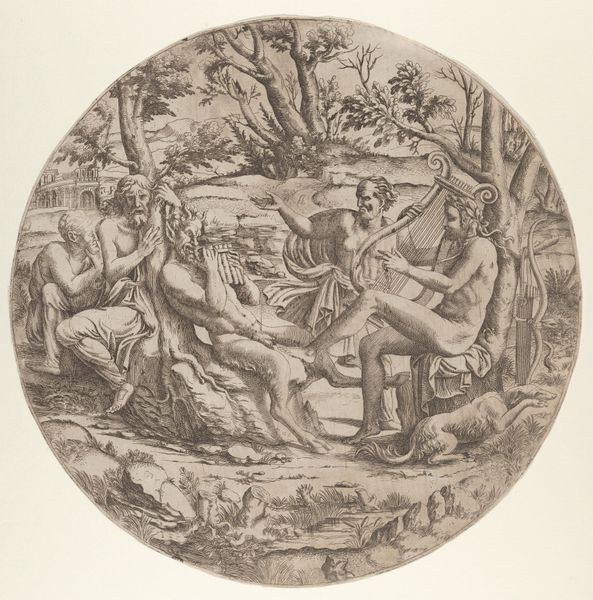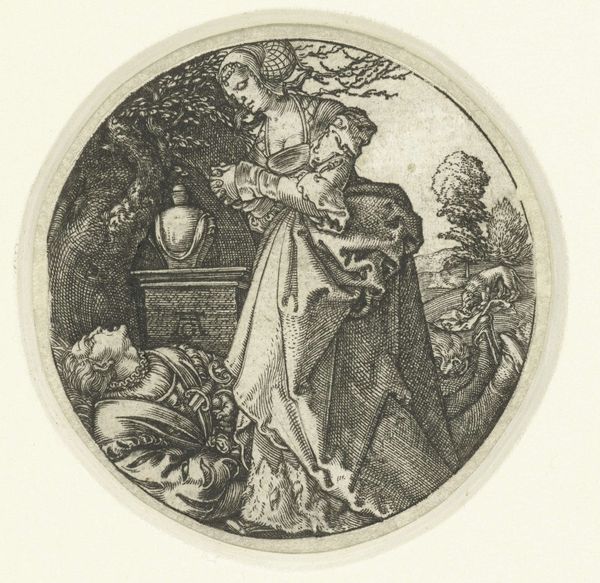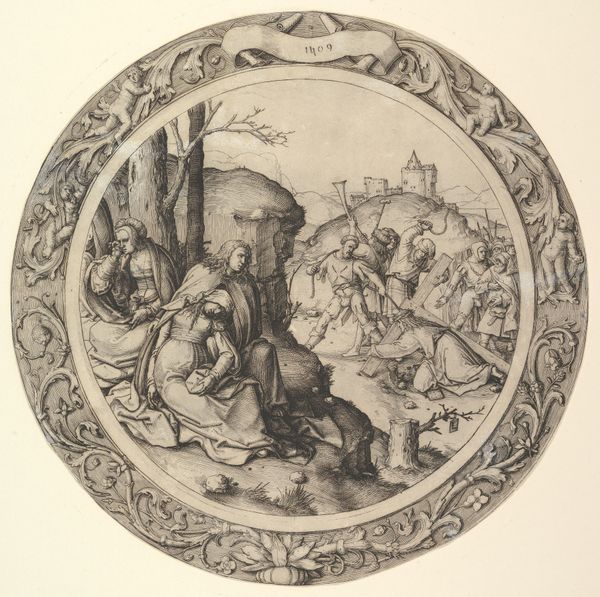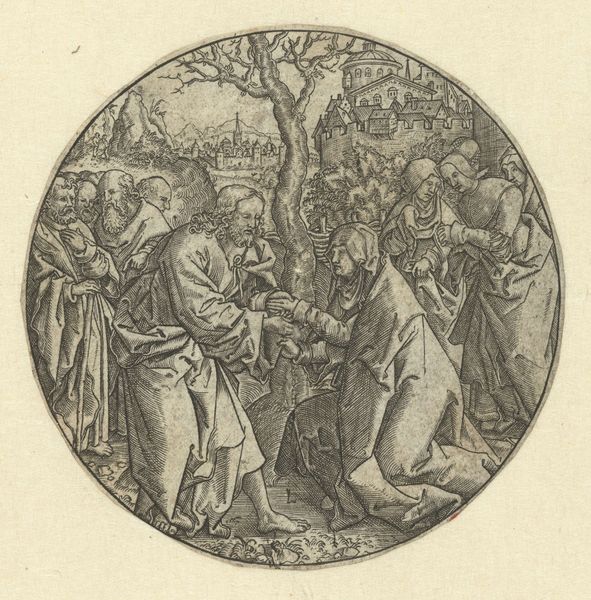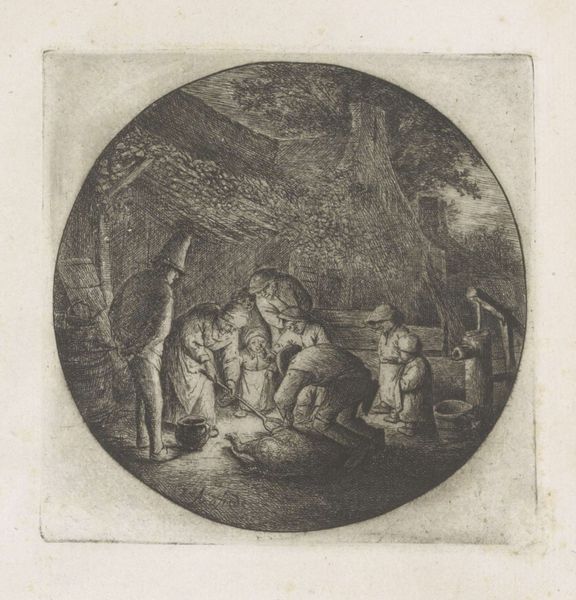
print, engraving
#
narrative-art
# print
#
figuration
#
pencil drawing
#
northern-renaissance
#
engraving
Copyright: Rijks Museum: Open Domain
This engraving by the Master of the Amsterdam Cabinet visualizes the medieval legend of Aristotle and Phyllis. The image reflects anxieties about gender roles and social hierarchies in the late medieval period. Made in the Netherlands, the image tells the tale of the philosopher Aristotle, reduced to the state of a beast, crawling on his hands and knees and bridled like a horse by a seductive young woman, Phyllis. Two onlookers are visible behind a wall. This cautionary tale about the power of women to undermine even the greatest of men, circulated widely in courts in the 14th and 15th centuries. The institutional context in which the print was made, the artist’s workshop, was supported by wealthy patrons. The engraving's detailed lines and tonal contrasts, created through hatching, invite closer inspection. To understand this artwork, one might consider the complex social dynamics of courtly love, the misogynistic views of the time, and the role of art in reinforcing or challenging social norms. Art history, like all history, requires a deep understanding of the past through careful examination of visual and textual evidence.
Comments
No comments
Be the first to comment and join the conversation on the ultimate creative platform.
